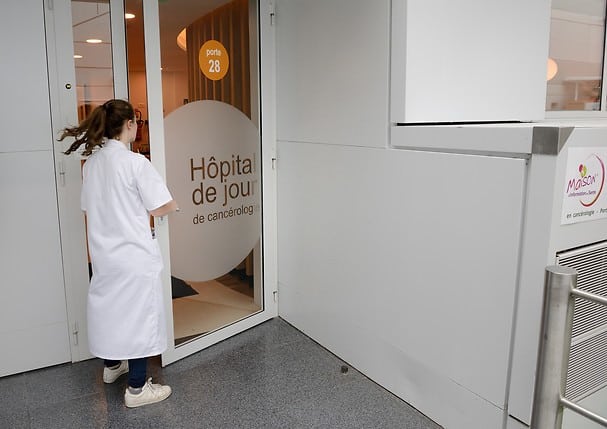Breast cancer is the most common form of cancer in women. In France, it affects almost 58,000 women each year. If it is detected early enough, nine times out of ten it can be treated successfully.
Almost 5,000 women are treated for breast cancer each year in the AP-HP hospitals, in four expert centers (the Georges-Pompidou European Hospital – AP-HP, the Tenon Hospital – AP-HP, the Pitié-Salpêtrière Hospital – AP-HP and the Saint-Louis Hospital – AP-HP) and their associated centers. The follow-up is carried out from screening (several rapid diagnostic centers) up until the different therapies – medical treatments (chemotherapy, anti-hormonal treatments, targeted therapies and immunotherapy), surgical procedures (with, if necessary and possible, immediate mammary reconstruction) and radiotherapy.
“The Assistance Publique – Hôpitaux de Paris, given its hospital-university character and the number of hospital establishments that it encompasses, treats all patients at risk from breast cancer at any time, from the moment the risk is detected and the initial screening, until the treatment of the most complicated forms that require multi-disciplinary approaches beyond cancer specialists,” Prof. Joseph Gligorov, Director of the Institut Universitaire de Cancérologie AP-HP Sorbonne University, and of the Medical Oncology department of the Tenon Hospital (AP-HP).
First, the patients’ potential risk level is assessed. This primary prevention aims to ensure that there is no increase in the number of cancers. At the end of May 2018, the first breast cancer risk management consultation center opened at the Pitié-Salpêtrière Hospital (AP-HP). For women with a high risk of breast and ovarian cancer, due to a genetic predisposition (such as certain mutations in the BRCA1 and BRCA2 genes) or a strong family history, a network certified by the Institut National du Cancer was federated around eight centers specifically dedicated to them (Avicenne AP-HP, Georges-Pompidou European AP-HP, Henri-Mondor AP-HP, Jean-Verdier AP-HP, Lariboisière – Ferdinand-Widal AP-HP, Pitié-Salpêtrière AP-HP, Saint-Louis AP-HP and Tenon AP-HP Hospitals).
Moreover, several rapid diagnostic centers have been set up. Mammographies, echographies, MRI and clinical examinations require investigation by dedicated imaging department specialists involved in the national screening program. These tests involve a double examination in order to reduce the margin of error. They use innovative and powerful tools and senology techniques, such as tomosynthesis, that excludes benign lesions, and angiomammography, that is capable of revealing lesions that are invisible to mammography or contrast echography.
In so far as concerns the locoregional management of these cancers, surgery incorporates all modern techniques (sentinel node exploration, oncoplasty and reconstructive techniques). In keeping with their public health mission, nine AP-HP establishments perform surgical procedures, such as breast reconstruction, without any extra fees. Almost 50% of women are treated as outpatients.
Hypo-fractionated radiotherapy is also offered to women at low risk of recurrence (radiotherapy can be reduced to five days with one session per day).
Specific care pathways have even been implemented for pregnant women with cancer, as well as obese and overweight women.
With 100,000 employees, an operating budget of €7.8 billion and almost 40,000 new cancer cases treated each year, the AP-HP is the leading French center and one of the largest in the world, in terms of the number of patients treated. They bring together all the specialties that patients with more complex pathologies may need. “This is an added value,” said Prof. Joseph Gligorov.
In the post-cancer phase, day hospitals or dedicated areas provide support care to women who need it, in order to improve their quality of life (nutrition, rehabilitation, sports, but also cardiology and endocrinology). In collaboration with city-based coordinating bodies and patient associations, the AP-HP centers offer end-of-treatment consultations, with the establishment of a Personalized Post-Cancer Program, a recovery consultation program with systematic analysis of needs, and a cancer and employment network.
Seven AP-HP establishments are supported by the Sorbonne University, this ensures that they have access to excellent research bodies and the latest medical or surgical innovations. “We cooperate closely not only with fundamental research teams but also with the Human Sciences department,” the Director of the Institut Universitaire de Cancérologie AP-HP Sorbonne University added. A patient university has thus been created in order to better understand the issues, the transformation and the future for patients diagnosed with cancer. This patient university also trains the patients’ carers.



